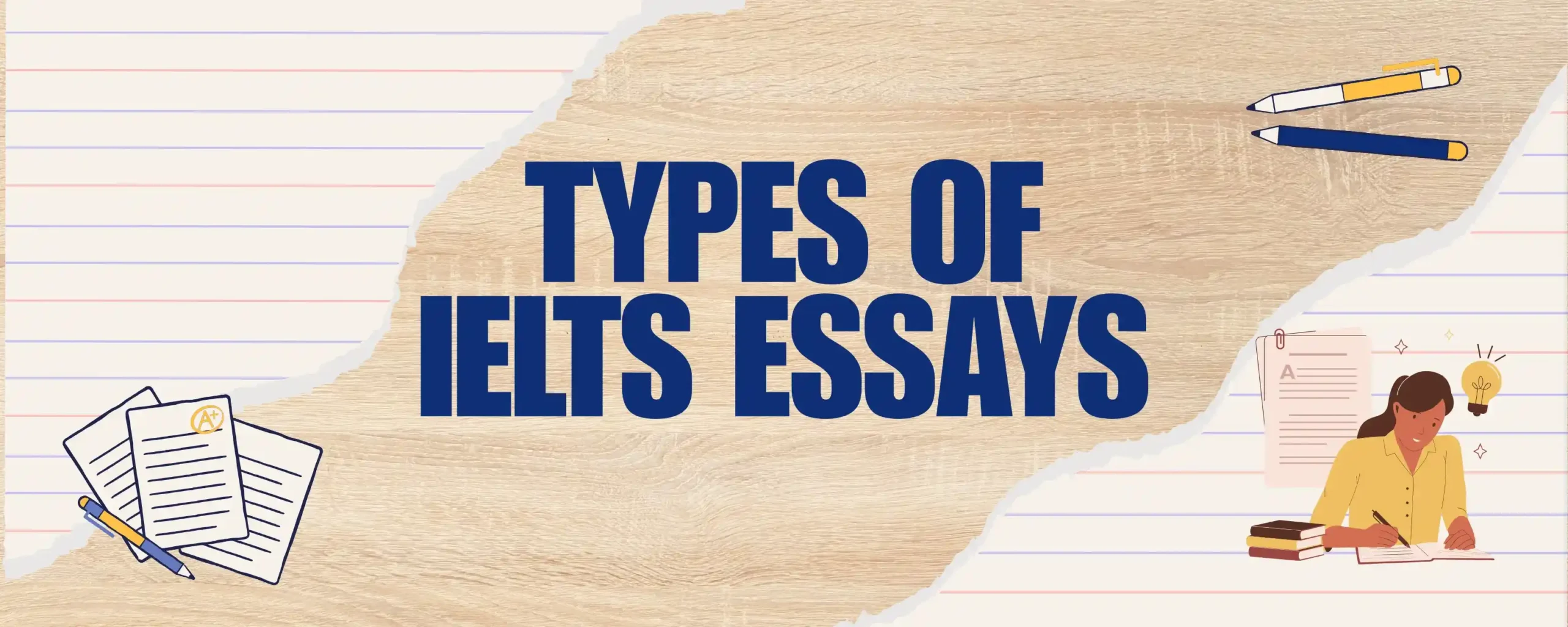Are you aiming for an 8+ band score in your first IELTS attempt? Don’t be discouraged by others’ experiences – just because some had to retake the test doesn’t mean you will. With dedication, expert guidance from a top IELTS coaching institute, and consistent practice, cracking the IELTS on your first try is absolutely achievable!
Each year, over one million Indians take the IELTS exam, which is accepted by more than 9,000 institutions across 140+ countries, including the UK, USA, Canada, and Australia. Achieving a high score can unlock countless opportunities. This blog will guide you on how to succeed on your first attempt and avoid the hassle of retaking the test.
Understanding the IELTS Exam Structure
Firstly, you must decide which IELTS test you want to appear for. There are two main types: IELTS Academic and IELTS General Training. If you’re aiming for undergraduate or postgraduate studies in an English-speaking country, the IELTS Academic is the right choice. On the other hand, if you’re applying for secondary education, work experience, or immigration in countries like Australia, New Zealand, Canada, or the UK, IELTS General Training is the one to opt for.
Once you’ve selected your test, it’s crucial to familiarize yourself with the exam format and the sections you’ll need to prepare for IELTS is divided into four core areas: listening, reading, writing, and speaking. Understanding the structure of each section will give you an edge in your preparation.
| IELTS Test Sections | IELTS Academic | IELTS General Training | Time Allocated |
| IELTS Listening | 4 parts are tested and there are 40 questions | 30 minutes | |
| IELTS Reading | 3 passages, 40 questions | Multiple texts, 40 questions | 60 minutes |
| IELTS Writing | Task 1: Report WritingTask 2: Essay | Task 1: Write a letterTask 2: Essay | 60 minutes |
| IELTS Speaking | Part 1: Introduction and Interview Part 2: Individual long turn / task card Part 3: Discussion | 11-14 minutes | |
Once you’re confident about the structure, the next thing to understand is the assessment & grading pattern, as well as band descriptors. The IELTS exam is scored on a band scale of 0 to 9, with each band representing a specific level of English proficiency.
| Module | Criteria | Description | Band Descriptors |
| Listening | Accuracy | Each correct answer receives one mark. Scores are converted to the IELTS 9-band scale. | Band 9: Expert UserBand 8: Very Good UserBand 7: Good UserBand 6: Competent UserBand 5: Modest UserBand 4: Limited UserBand 3: Extremely Limited UserBand 2: Intermittent UserBand 1: Non-user Band 0: Did not attempt the test |
| Reading | Accuracy | Each correct answer receives one mark. Scores are converted to the IELTS 9-band scale. | |
| Writing | Task Achievement/Response (Task 1 & 2) | Addresses task requirements and answers questions effectively. | |
| Coherence and Cohesion | Organizes ideas logically and coherently. | ||
| Lexical Resource | Demonstrates range and accuracy of vocabulary. | ||
| Grammatical Range and Accuracy | Demonstrates range and accuracy of grammar. | ||
| Speaking | Fluency and Coherence | Speaks fluently with logical development of ideas. | |
| Lexical Resource | Uses a wide range of vocabulary accurately. | ||
| Grammatical Range and Accuracy | Uses a variety of complex structures with accuracy. | ||
| Pronunciation | Pronunciation is clear and natural, with minimal accent. | ||
| Overall | Band Score | The average of the four module scores is rounded to the nearest half or whole band. |
Preparation Strategies for Each Section
Achieving a strong score in each section is key to securing an excellent overall band score, so it’s essential to dedicate equal attention to every part of the test. Regular practice will help you identify your strengths and highlight areas where improvement is needed. You can then devote your time accordingly and practice the section where you score comparatively less. Below, we share key tips to crack each section of IELTS on your first attempt.
Listening
- Improve your listening skills by regularly practicing with audio clips, podcasts, and watching English shows or news channels.
- Familiarize yourself with different accents (British, American, Australian, etc.) as the test includes various accents.
- Focus on note-taking by using abbreviations, symbols, and short phrases and listen for specific details such as dates, numbers, and keywords.
- Focus on the introduction of the audio clips. The introduction carries all the small and minor but the most important details and information.
- Keywords and word indicators are very important. Word indicators are signs of understanding the relevant and important details and information.
Reading
- Master the art of skimming and scanning. Skim to understand the main idea and scan for specific information to answer questions faster.
- Practice time management by setting time limits when reading passages.
- Work on different question types like True/False/Not Given, Multiple Choice, and Matching Headings to improve accuracy.
- Build your vocabulary to understand complex texts better. Knowing synonyms helps in identifying key information quickly. Try to learn new words that are not used in everyday conversation.
- While taking the test, read the questions and then the passage. This way, you can answer 50% of the answers in just one reading.
- To perform well on your IELTS reading test, you must develop a consistent reading habit. Read a variety of texts, including articles, reports, and essays, to become comfortable with different styles and topics.
Writing
- Understand the writing task types and assessment criteria for both Task 1 and Task 2, so that you stay relevant. Task 1 usually involves writing a report or describing visual data, while Task 2 is an essay on a given topic.
- Focus on structuring your writing with clear introductions, body paragraphs, and conclusions.
- Practice writing essays and reports every day, within the time limits to improve your speed and coherence.
- Use a wide range of vocabulary, use a variety of sentence structure to show off your fluent English skills.
- Always leave a few minutes to check for errors and refine your language. Review and edit your writing for grammar, punctuation, and coherence before submitting.
Speaking
- Improve your fluency and coherence by practicing speaking on common IELTS topics such as travel, hobbies, or current events.
- Work on pronunciation and avoiding hesitations to make your speech more natural.
- Record yourself speaking and listen back to identify areas for improvement, such as pronunciation or grammar.
- Practice speaking English regularly with friends, family, or language partners, take part in mock speaking tests to get feedback and boost your confidence.
- While preparing for the speaking section, pay attention to your intonation, pace, and pronunciation. Also, focus on fluency when speaking rather than vocabulary.
Common Mistakes to Avoid
Avoiding common mistakes like mismanaging time and misunderstanding questions can significantly boost your IELTS score. Here are some common mistakes to avoid in each section to maximize your performance.
- Listening: Avoid focusing too much on one question and missing out on the next section. Stay attentive throughout the audio.
- Reading: Don’t spend too much time on one passage. Manage your time efficiently across all sections. Scan in detail to avoid misunderstandings.
- Writing: Ensure that you answer all parts of the prompt and stick to the word limit for each task.
- Speaking: Don’t memorize answers, as the examiner can tell. Focus on giving natural responses with clear pronunciation.
Mock Tests and Practice
Taking regular mock tests is essential to your preparation. These tests simulate the actual exam environment, allowing you to manage your time, build confidence, and identify areas that need improvement. By analyzing your performance, you can focus on weak areas and refine your strategies accordingly.
Additional Resources and Tools
To ace the IELTS exam, you’ve got to be good at English. But don’t worry; there are many ways to improve your skills. It will take more than just solving practice tests. It would be best to watch your favorite movies or TV shows in English, listen to English songs, read English newspapers, and tune into English news channels. To supplement your preparation, here are some helpful resources:
- Apps: IELTS Prep App, Magoosh, and BBC Learning English.
- Websites: IELTS.org, La Forêt Education and British Council.
- Books: The Official Cambridge Guide to IELTS, Barron’s IELTS, and IELTS Trainer.
- Forums: IELTS preparation communities on Reddit and Quora for peer support and additional tips.
Conclusion
Cracking the IELTS in your first attempt requires a strategic approach, thorough preparation, consistent practice, and a positive mindset. By focusing on each section’s specific requirements and avoiding common mistakes, you can significantly improve your chances of success. With these tips and tricks in mind, you can confidently take the IELTS exam, giving yourself the best chance to succeed and achieve your desired score. Good luck on your IELTS journey!
Frequently Asked Questions
Q: Is it hard to crack the IELTS?
Ans: Cracking IELTS can seem challenging, but with the right approach, it is entirely achievable. The difficulty level varies depending on your English proficiency, preparation strategy, and familiarity with the test format. With consistent practice, smart study habits, and proper guidance, many candidates find success in their first attempt.
Q: How can I crack the IELTS at home?
Ans: Cracking IELTS at home is possible with the right resources and self-discipline. Create a study plan, use reliable online resources, and take regular mock tests to track your progress. Practice speaking with language partners, watch English media to improve listening skills, and engage in writing exercises to hone your writing and reading sections.
Q: Is getting 7 in IELTS easy?
Ans: Getting a 7 in IELTS requires good command of English, but it’s achievable with thorough preparation. Focus on understanding the exam format, practicing each section regularly, and learning from your mistakes. Target your weak areas and take feedback seriously to improve and reach the band 7 goal.
Q: How many hours should I study to crack the IELTS in the first attempt?
Ans: To crack IELTS in your first attempt, aim for at least 2-3 hours of focused study per day over a period of 4-6 weeks. The time you need may vary depending on your current proficiency, so adjust based on practice test results and areas that need improvement.





